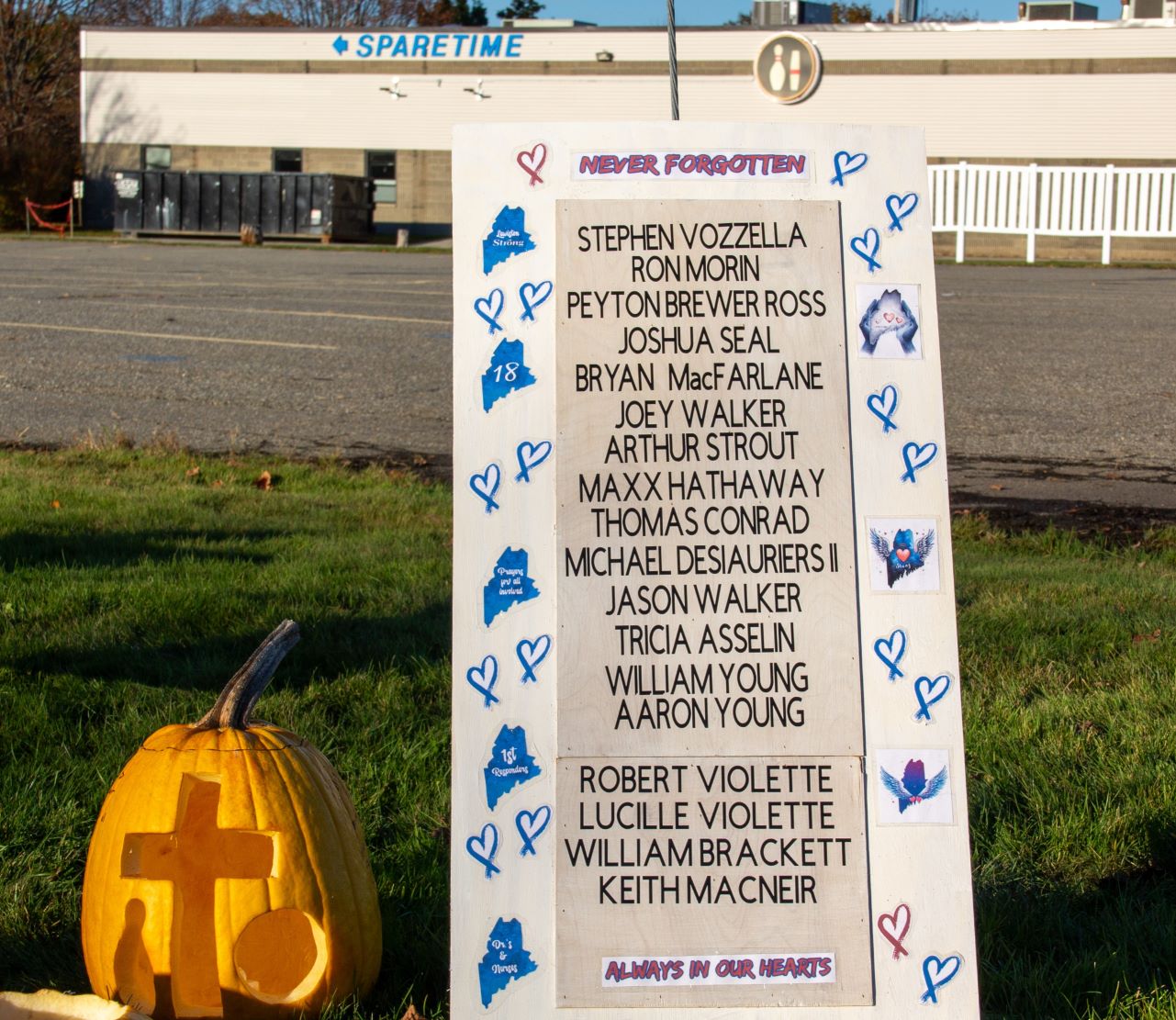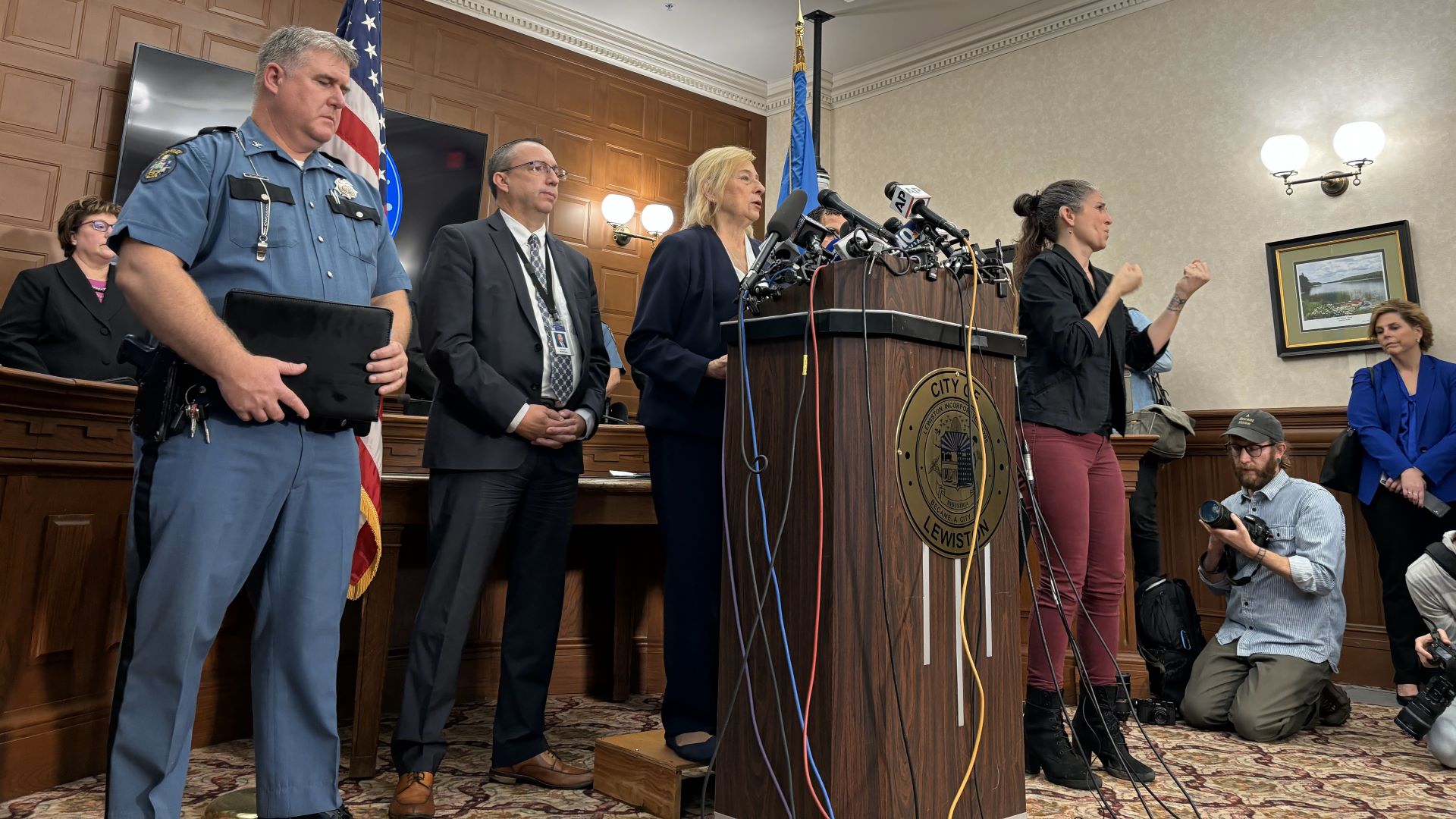The deadly shooting in Lewiston turned attention to the gun policy positions of Gov. Janet Mills, who has opposed bans on assault-style rifles but backed other gun safety measures in a state with a deep hunting and gun rights culture.
Mills’ views will heavily influence the viability of any gun control bills as safety activists and legislators consider reform before the legislature reconvenes in January.
As recently as last year, Mills, a second-term Democrat, stated her opposition to bans on assault-style weapons and high-capacity magazines in a questionnaire compiled by the Sportsman’s Alliance of Maine, an advocacy group for hunters, outdoor enthusiasts and gun owners.
In that same questionnaire, Mills expressed skepticism of “red flag” laws that would allow family or household members to petition a court to remove a person’s firearms if the person is deemed a violent threat.
“‘Red Flag’ laws … do not afford adequate due process protections,” Mills wrote in an accompanying explanation. She instead highlighted her support of the state’s current “yellow flag” law that was enacted in 2019 with bipartisan support and the Alliance’s approval.
Unlike red flag laws, Maine’s yellow flag law is initiated by law enforcement and requires a medical expert to determine whether a person presents “a likelihood of foreseeable harm” to themselves or others because of suicidal or violent threats.
A sponsor of Maine’s yellow flag law, state Sen. Lisa Keim, R-Dixfield, said its provisions likely should have been used to remove Lewiston shooting suspect Robert Card’s weapons, according to reporting from the Portland Press Herald.
Mills said Monday “action is needed” when it comes to gun violence and public safety, despite her past views. She said she would convene various public health experts, advocates, community members and public safety officials to discuss actions to consider.
Responding to a reporter’s question whether she would support a red flag bill, Mills said she would not take any specific proposal off the table.
“There are a lot of ideas out there,” Mills said. “I’m willing to listen to all voices.”
A Mills spokesperson referenced that response in an email reply to questions from The Maine Monitor about the governor’s past views, including those published in the questionnaire.
Press secretary Ben Goodman called attention to Mills’ support of legislation that allows judges to remove firearms from domestic abusers and another law that notifies victims of domestic violence when someone they have a restraining order against tries to acquire a gun.
The yellow flag law and another program incentivizing the safe storage of guns were also evidence of her commitment to public safety reforms, Goodman said.
As of Saturday, Goodman said Mills has initiated outreach to legislators to begin considering potential actions.
“The Governor’s Office, as well as the Governor personally, have begun to reach out to legislators on both sides of the aisle,” Goodman wrote. “The Governor has said that she is committed to hearing from people from all viewpoints.”
Any action would have to pass the legislature. Some Democrats have shown interest, but Senate President Troy Jackson, D-Aroostook, has been against stricter gun laws.
“As Speaker of the Maine House, I urge all of my colleagues to look with new eyes on Maine’s lax gun laws,” House Speaker Rachel Talbot Ross, D-Portland, said in a press release. “We can and must have a serious conversation about needed policy reforms to address the disturbing violence that occurs with unregulated dangerous weapons.”
In the second session of the 131st state legislature, lawmakers will be limited to considering bills approved on an emergency basis by the Legislative Council (which includes Jackson and Ross), introduced by the governor, carried over from the first session, or pertaining to the budget.
Legislation guided by authorized studies or permitted by citizen initiative can also be considered.

Over her two decades in public office, Mills’ positions on gun legislation have varied along with the approval ratings she’s received from prominent gun rights groups like the Sportsman’s Alliance and National Rifle Association.
As a state legislator representing Farmington in 2005, Mills and a majority of Democrats voted against a bill mandating background checks before sales of firearms at gun shows, and again opposed a bill regulating firearms on college campuses in 2007.
Her legislative scorecard with the NRA went from a “C” ranking in 2007 to an “F” in 2018 during her first run for governor.
“I wouldn’t usually be proud to get a failing grade … but this time I’ll make an exception,” Mills wrote in a 2018 Facebook post.
When the Sportsman’s Alliance awarded Mills an “A” in its most recent legislative guide, the group spoke glowingly of her willingness to collaborate on gun legislation, and support its visions for hunting, outdoor recreation and land conservation.
It said Mills and her office reached out shortly after her election in 2018 and set a positive tone, including her collaboration with the group on the yellow flag bill.
“The first years of the Mills administration were heavily influenced by firearm policy,” the group wrote. “Dozens of extreme, controversial gun control bills were introduced — and none passed! That was not a coincidence.”
The Sportsman’s Alliance did not respond to a request for comment on Mills’ past legislative views.
Meanwhile, the legislature approved two gun safety bills in 2021 without Mills’ signature, one that charges people who allow gun access to youths without parental permission and another that mandates the state track firearm deaths and injuries.
“I think that if anything, she is a person that seeks compromise, and tries to figure out, you know, what’s actually possible, what’s feasible” when it comes to gun control legislation, said Michael Rocque, who chairs the Bates College sociology department and studies mass shootings.
Rocque said because the Lewiston shootings were unprecedented in Maine, they may also bring an unprecedented political response.
That leaves the potential for Mills to adjust her past views on gun legislation like U.S. Rep. Jared Golden did when he reversed course soon after the shootings and called for a ban on the sale of assault-style weapons and restrictions on possessing the weapons.
“These are certainly unprecedented times that may result in changes in terms of how people feel about their previous positions,” Rocque said.
He added that Mills’ receptiveness to gun control legislation Monday is already more than other states have provided in the aftermath of mass shootings, and the introduction of effective gun control legislation, like banning high-capacity magazines, could follow. That approach bans the magazines, not the weapons themselves.
Only 10 states have assault weapons bans, including two in New England — Massachusetts and Connecticut — evidence of how difficult passing similar legislation in Maine could be. Fourteen states have banned the magazines.
“Other states have had tragedies like this and they don’t even have the lip service to pretend that they’re going to do anything,” Rocque said. “And we know that … (gun) permits and large capacity magazine bans are associated with better outcomes when it comes to gun violence.”
Gun safety advocates and Democratic legislators are optimistic about Mills’ legislative approach based on her recent statements and the announcement her office would form an independent commission to investigate what led to the shootings.
“I know that our governor is a person with a lot of compassion and a strong sense of justice, and I believe that this event has had a deep impact on her,” said Peter Frothum, board member of the Maine Gun Safety Coalition, in a Friday interview with The Maine Monitor.

Frothum’s group hosted a rally Saturday in Augusta to call for an assault weapons ban, background checks for firearms purchases and the elevation of the state’s yellow flag law to a red flag law.
“It’s both to commemorate those slain so horribly, as well as to try to capture the deeply understandable sense of grief and outrage to move forward on very overdue gun safety laws,” Frothum said.
He added that President Biden’s visit to Maine only buoyed his optimism, saying Biden’s influence as a strong advocate for gun safety is important for Mills’ policy considerations. In Lewiston on Friday, Biden called for “reasonable, responsible measures” to curb gun violence.
State Rep. Melanie Sachs, D-Freeport, said she was encouraged when Mills said no gun control policy was off the table. Sachs was the lead sponsor of a 2023 bill to outlaw accessories designed to accelerate the rate of fire of a semi-automatic weapon that passed in the House but died in the Senate.
“For those of us who have been working in this space during my time in the legislature, (we) are very, very encouraged that there is at least communicated a willingness to examine every opportunity for gun safety,” Sachs said.







